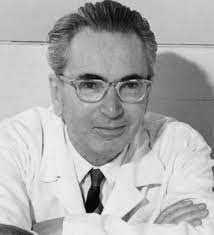If I were to pick out just one book that has had the biggest impact on me personally, it would be Viktor Frankl’s, ‘Man’s Search for Meaning’. Published in 1946, this timeless classic provides invaluable insight into many of life’s biggest questions. From its exploration of existentialism to its examination of human resilience, this book contains essential advice for how best to live our lives with purpose and find meaning in times of despair.
Viktor Frankl was an Austrian Jew who was arrested in Nazi Germany and spent several years living in concentration camps. In his book, Frankl argues that the human search for meaning is the primary motivation in life and that life individuals can find meaning in any situation, even in the midst of suffering.

The Ultimate Meaning of Life and Human Suffering
For Frankl then, the ultimate meaning of life and human suffering is found in an individual’s pursuit of a personally meaningful existence. Based on his experiences in the concentration camps, he came to believe that each person must find their own purpose in order to find true happiness. Furthermore, he argued that suffering is paradoxically part of our journey towards living a meaningful life – it can either create something powerful or destroy us. It’s how we learn to use this suffering as a tool for growth that ultimately decides our fate.
Logotherapy – The Meaning-Centered Approach to Mental Health
Viktor Frankl’s experiences in Nazi concentration camps provide evidence for his psychological theory of logotherapy, which explains that we need to discover a meaningful approach to life in order to preserve our mental health. Frankl’s findings from the camps and his development of logotherapy explain how prisoners of the Nazi regime managed to stay sane.
‘Forces beyond your control can take away everything you possess except one thing, your freedom to choose how you will respond to the situation. You cannot control what happens to you in life, but you can always control what you will feel and do about what happens to you.’
The freedom to choose is something that most of us take for granted, but in the camps, the ability to decide for oneself took on a new meaning. Sometimes, prisoners were ordered to go to another camp, but they were kept in the dark about the true destination and the meaning of the transfer. Some prisoners were desperate to change their decision, but there was no way for them to know what would be best. Despite their horrific conditions, there were some prisoners tried to live in accordance with their own values, such as giving bread to those in greater need.
From these obserations, Frankl believed that the search for meaning belongs at the very root of our being, and that it should be the basis of all psychological work. He claimed that if an individual can find some sort of purpose in life, then they could overcome physical, mental and emotional suffering much more easily. By always looking for a way forward and finding new ways to express yourself, you can come out stronger on the other side and become fulfilled in life.
Reinforcing this idea, Frankl noted was that ‘intellectual’ prisoners who were of a more delicate constitution were actually more likely to survive precisely because they could find a sanctuary within their own minds:
‘In spite of all the enforced physical and mental primitiveness of the life in a concentration camp, it was possible for spiritual life to deepen. Sensitive people who were used to a rich intellectual life may have suffered much pain (they were often of a delicate constitution), but the damage to their inner selves was less. They were able to retreat from their terrible surroundings to a life of inner riches and spiritual freedom. Only in this way can one explain the apparent paradox that some prisoners of a less hardy make-up often seemed to survive the camp better than those of a more robust nature.’
One key practical approach that Frankl suggests is to actively pursue your fears in order to help you manage them. Logotherapy also offers techniques that can assist individuals with mental disorders resulting from what Frankl describes as ‘an existential vacuum’. Instead of focusing on external factors, logotherapy concentrates on internal ones that impact patients. Unlike traditional psychotherapy, which explains a patient’s neurotic fears in terms of their environment, logotherapy assumes that people can define their life’s purpose and make decisions independently of their environment. This approach empowers individuals to realize that they have control over their fears and anxieties, leading to long-term results.
One of the techniques employed by logotherapy is paradoxical intention. For instance, if someone is afraid of blushing in front of others, they will start to blush as soon as they think about it. Logotherapy encourages the individual to do exactly what they are afraid of, in this case, to try and blush as much as possible in front of people. Through this process, the individual realises that when they try to force themselves to blush, nothing happens. Eventually, this leads to a reduction in their fear of blushing.
The Key Ingredients for a “Fulfilling” Life
According to Frankl, the three key ingredients for a satisfying life are state of freedom, responsibility and meaning. The feeling of freedom comes when one is able to make choices and decisions in line with their values, whereas responsibility is accepting the consequences of these decisions. Frankl also believed that even in suffering, humans should act responsibly. Meaning is found in what we do; purposeful actions bring us closer to making sense of our lives. And as long as one uses their creativity purposefully and finds meaningful relationships then, life can become fulfilling on its own terms:
‘We needed to stop asking about the meaning of life, and instead to think of ourselves as those who were being questioned by life daily and hourly. Our answer must consist, not in talk and meditation, but in right action and in right conduct. Life ultimately means taking the responsibility to find the right answer to its problems and to fulfill the tasks which it constantly sets for each individual.
To be sure, man’s search for meaning may arouse inner tension rather than inner equilibrium. However, precisely such tension is an indispensable prerequisite of mental health.’
How to Extract Good from Bad Experiences in Life
When facing adversity, it’s important to remember that good can be extracted from bad experiences. According to Frankl, we should find the courage to face hardship with dignity, using our values and personal growth as guides. To make sense of suffering, it is essential to look for the hidden potential within it; after all, what doesn’t kill us makes us stronger. Once we recognize that there is something valuable in every experience, life becomes more manageable and even meaningful:
‘… it can be seen that mental health is based on a certain degree of tension, the tension between what one has already achieved and what one still ought to accomplish, or the gap between what one is and what one should become. Such a tension is inherent in the human being and therefore is indispensable to mental well-being. We should not, then, be hesitant about challenging man with a potential meaning for him to fulfill. It is only thus that we evoke his will to meaning from its state of latency. I consider it a dangerous misconception of mental hygiene to assume that what man needs in the first place is equilibrium or, as it is called in biology, “homeostasis,” ie., a tensionless state. What man actually needs is not a tensionless state but rather the striving and struggling for a worthwhile goal, a freely chosen task. What he needs is not the discharge of tension at any cost but the call of a potential meaning waiting to be fulfilled by him.’
A useful strategy that Frankl mentions in Man’s Search for Meaning is to find humour, ‘The attempt to develop a sense of humor and to see things in a humorous light is some kind of a trick learned while mastering the art of living.’
Becoming Motivated to Find Meaning in Everyday Existence
Viktor Frankl’s Man’s Search for Meaning challenges readers to find motivation to live a meaningful life each day. For example, Frankl encourages us to identify our unique talents and use them to make positive contributions to society in whatever way possible. Doing so encourages us to realize that the purpose of life is not limited by our circumstances, but rather determined by how we choose to respond and react in different situations. Through practical applications, Frankl helps us realize that no matter what our experiences may be, it is up to us how we will ultimately embrace them.
‘As each situation in life represents a challenge to man and presents a problem for him to solve, the question of the meaning of life may actually be reversed. Ultimately, man should not ask what the meaning of his life is, but rather he must recognize that it is he who is asked. In a word, each man is questioned by life; and he can only answer to life by answering for his own life; to life he can only respond by being responsible. Thus, logotherapy sees in responsibleness the very essence of human existence.’
Concluding thoughts…
Man’s Search for Meaning is a powerful book which has a practical perspective on how to live a fulfilling life and effectively deal with suffering along the way. The book’s key idea is that our success in life is dependent on our ability to find our own meaning, which, incidentally, doesn’t have to be anything grandiose. Even in the darkest moments of life, there is always the potential for hope and meaning. It is a book that can inspire us to reflect on the importance of our own lives and to seek out meaning and purpose in everything we do. In fact, it is Viktor Frankl’s work that has inspired my own books, Musings of a Practical Optimist and The Know Yourself Guidebook – both of which are based on these idea that self-development is made possible by finding meaning and purpose.







